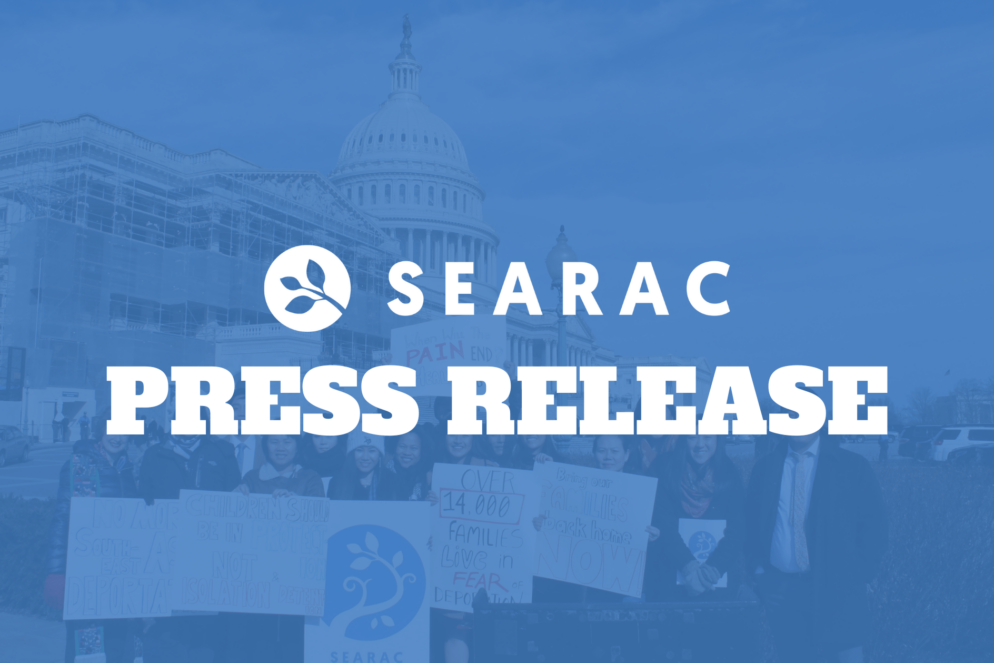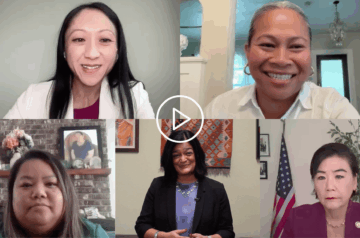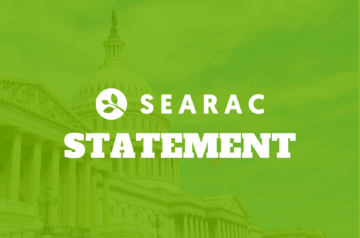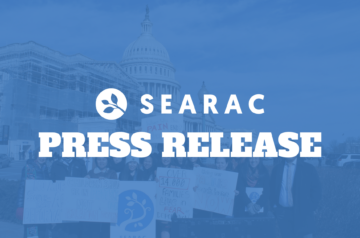Washington, DC – On Monday, the president signed an executive order extending his April executive order banning entry to the United States based on the family reunification and diversity visa programs. The ban will now be in place until December 31, 2020. The new executive order also extends the ban to include certain non-immigrant programs, including high skilled and guest workers, among other employment categories. As mentioned in SEARAC’s initial statement on the immigration ban, 221,000 individuals from Cambodia, Laos, and Vietnam are currently waiting in line to reunite with their loved ones in the United States.
Additionally, the order requires that the Department of Homeland Security (DHS) begin taking steps to prevent work authorization for individuals who:
- Have final orders of removal;
- Are inadmissible or deportable from the United States; or
- Have been arrested for, charged with, or convicted of an offense in the United States.
If DHS moves forward with regulations preventing work authorization for immigrants with a final order of removal, 15,000 Southeast Asian Americans would be unable to apply for or renew their work authorization. This would potentially throw tens of thousands of Southeast Asian families into an economic crisis, during a time when these communities are already reeling from the impacts of the COVID-19 pandemic.
“The president’s expanded and extended immigration ban is an attack on immigrants. In a time when our country should come together in unity to move progressive solutions and heal. The Trump Administration has shown that it will double down on efforts to hurt and divide our communities,” said Quyen Dinh, executive director of SEARAC. “This executive order is cruel, and will hurt Southeast Asian Americans. Our communities have over 221,000 family members who have already waited years for the opportunity to reunite with their loved ones, and it would essentially force individuals living with an order of removal into poverty, with few or no options for employment. SEARAC remains committed to fighting back against this cruel policy and this Administration’s continued attacks rooted in xenophobia.”
DHS will likely have to go through the formal regulatory process in order to prevent work authorization for individuals in the circumstances described above. SEARAC recommends that individuals subject to any of the above conditions apply for or renew their work authorization as usual.




